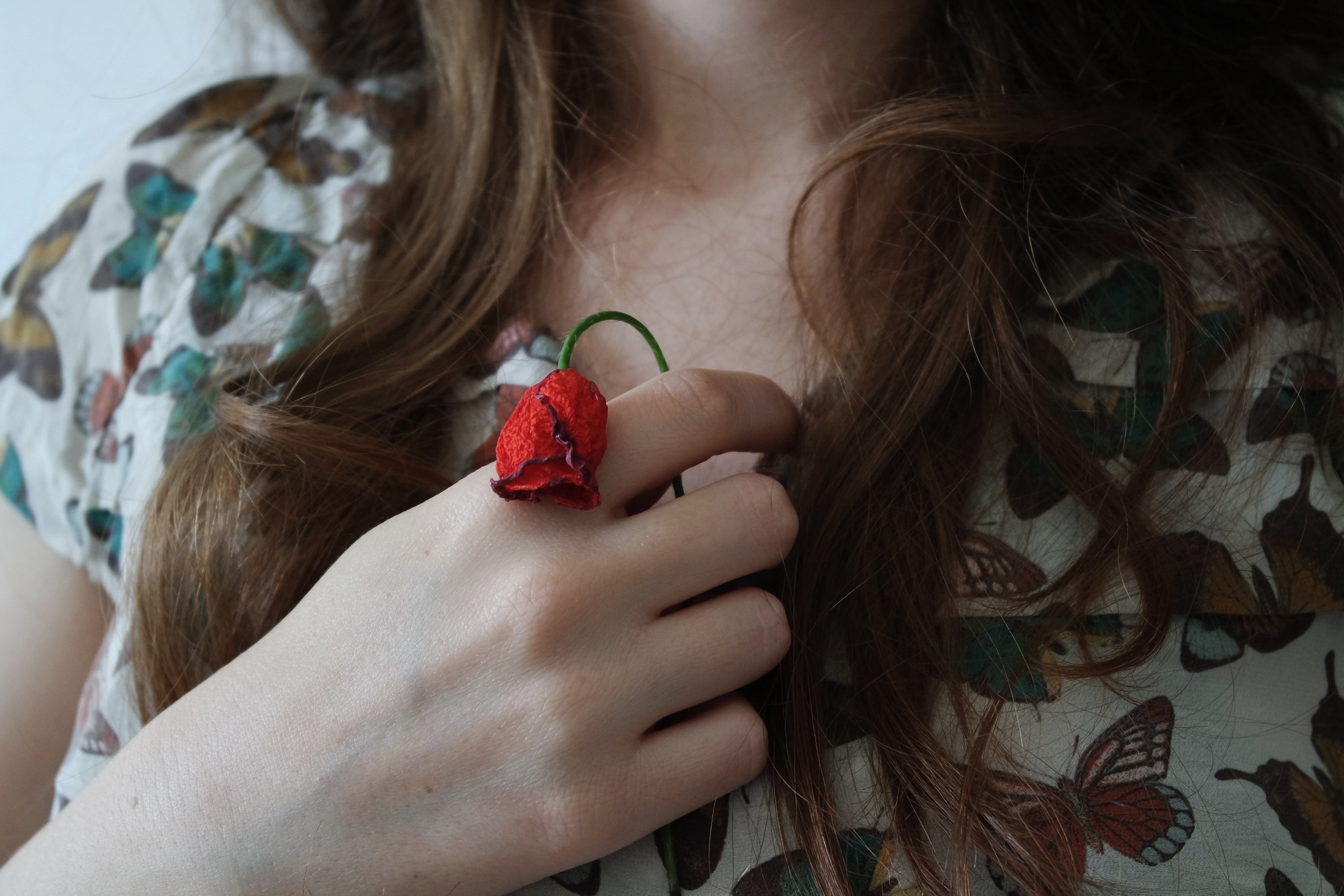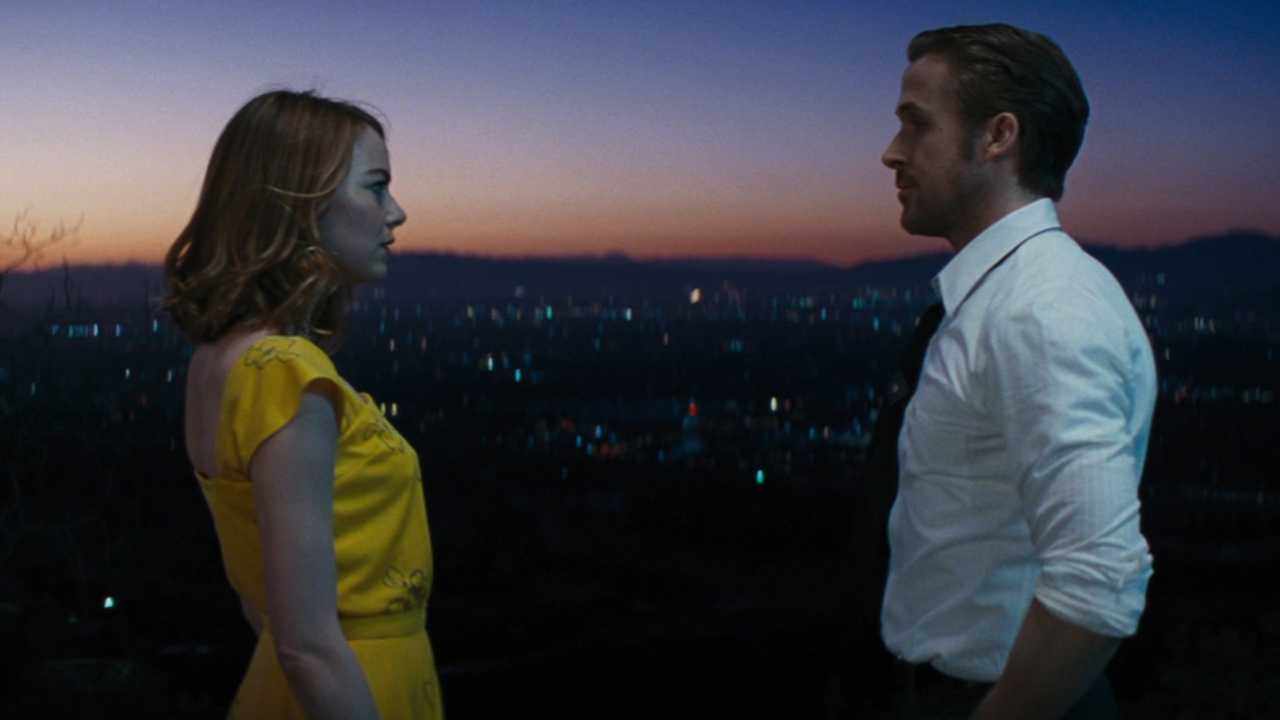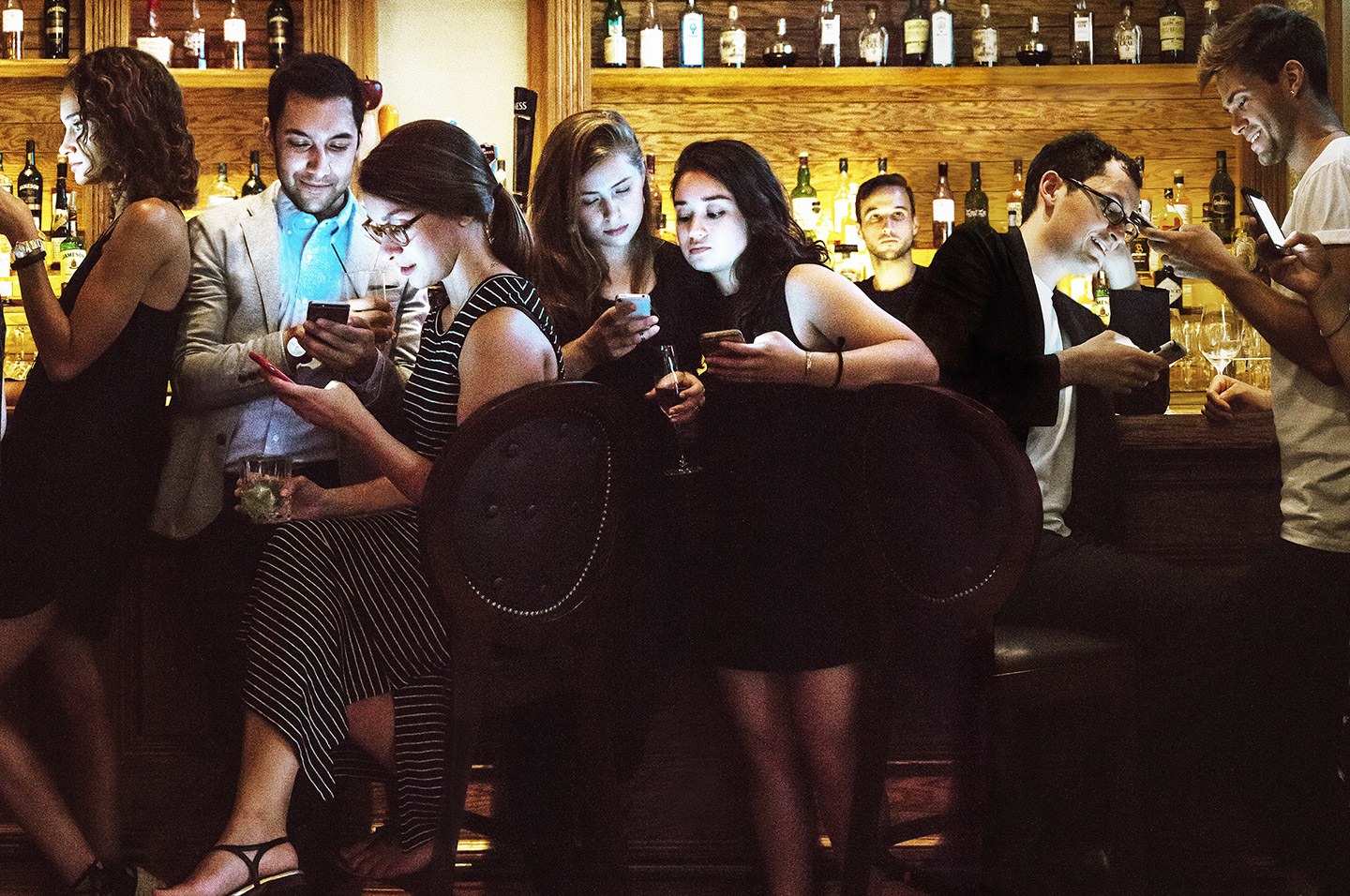If you're lucky, you'll meet the guy or girl of your dreams, fall in love with each other and settle down happily ever after without a hitch.
But in reality, you will probably fall in love with a couple of ‘wrong people’ before you meet "The One" - at least for most of us. And the journey there will be a perilous one filled with heartbreak and regrets.
Whether you're healing from a breakup, single and searching, or in a relationship, here are 8 advice on love and relationships. These millennials made these mistakes in their previous relationships, we hope you don't have to go through what they did.
* Some names have been changed for privacy reasons.
“Love Someone For Who They Are”
In my first relationship, I had a whole fantasy of an ideal mate and a version of her in my mind that wasn't her. Because of that, there were expectations, which led to plenty of disappointments. I've learnt that who you envision her to be or what she is in your head isn’t necessarily who she really is in person. I've come to accept and love a person for who they really are. – Andrew, 25“Don’t Force Yourself To Like What You Don’t Like”
Think for yourself and consider what’s best for you. You don’t have to like a certain thing just because your partner likes it. If your partner loves to game and spends a lot of time gaming but you don’t enjoy it, then don’t do it. Don’t waste time forcing yourself to grow an interest in something you obviously know you have none in. You do you and let him do his. – Mary, 26“Keep Your Communication Between Each Other Strong”
I was in Poly Year 1 while she was in Sec 4. It was exams period and we assumed that we were both busy so we didn’t text each other as much. On hindsight, we actually had time to talk even if it’s just for awhile. From then on, we talked lesser and lesser and her feelings slowly faded away. I think that to keep a relationship alive, it’s important to keep the communication strong and make an effort to update each other on what's going on in our lives. – Neil, 20“Don't Lose Yourself”
I always believed in giving my best or not giving at all. I wanted to make her the happiest person in the world so I gave her my all, even at my own expense. She didn't like my secondary school friends so I left them. I learnt that before you be with someone who makes you happy, you should be contented with yourself first. Remember to also love yourself. – Jun Shen, 24“Fate plays a part”
I've learnt that soulmates are not meant to complete us but to complement us. These relationships are intended to teach lessons so that we evolve and be the catalyst for change in life. You may have met your soul mate or someone you feel a deep connection with but you have to accept that it doesn't necessarily mean you're meant to be together. Sometimes, it's who you meet that has their goals, dreams, and timings aligned with yours. – Chantel, 25“Pay Attention To Their Actions, Not Their Words”
Someone can say they love you, but if they don't show it or if they physically, mentally or emotionally bully and harm you, that's not love. Also, how a guy talks about their mother is how they're going to treat you in their relationship. If all he has to say about his mother are negative things, you can bet that it's how he's going to talk about you to others. – Natasha, 24“Forgive Yourself”
I have been cheated on before, cheated on someone before, and got played before. One thing I've learnt from it all is to forgive yourself because everyone makes mistakes. It's hard to say what's right or wrong in relationships, there's always a grey area. Only when you’ve forgiven yourself can you start to let go of any anger or hatred you have, and move on. Move on. There's no point replaying things in your mind wishing you had done this or that because you can't undo anything anymore. When things have already happened, move forward and learn from it. – Ling, 26“Don’t Let Words Break You”
My ex played the blame game on me and would always guilt trip me into thinking that I was the one who hindered him in things like opportunities to study overseas or enjoying outdoor activities. On the contrary, I had never stopped him from doing what he wanted. His words really affected me, until I found out that he cheated on me and had used all these hurtful comments as excuses to break up with me. If your relationship ended badly, don’t let the words your ex said get to you. Don’t let your ex or other people guilt trip you, and don’t let your insecurities stop you from healing and moving on. – Lydia, 27Be A Stronger You
Just like how you take away a learning point from a good book or movie, you take a piece of your experience with you as you close a chapter in your (romantic) life. A piece that forms who you are in time to come. Just like these millennials who shared the lessons they’ve learnt from their past relationships, you will grow wiser and stronger. From millennial to millennial, we hope this advice help. And when you’ve grown stronger as a person, you’ll be ready to meet your other half over here. Also read, 8 Confession Stories That Are Like RL Versions Of Taiwanese High School Dramas.Call it a love letter to Los Angeles, an ode to starry-eyed dreamers, a revival of Golden Age Hollywood glam - La La Land checks all of those boxes and then some! The film is bursting at the seams with colour and whimsy, but at no point during the brilliantly choreographed musical numbers between Emma Stone and Ryan Gosling does it feel anything short of genuine.
Like all good movies, behind the dazzling screenplay is unexpected emotional heft. For something that promises a flight of fancy, the film manages to leave us with several life lessons worth unpacking. So if you haven’t seen La La Land yet, hit pause and head to the cinemas. Partly because it’s tipped for an Oscar, partly because Ryan Gosling is in it (hey girl) but mostly - MAJOR SPOILERS AHEAD.
Lesson 1. Chasing a pipe dream...
The premise of the movie is simple - boy meets girl, and the pair hit it off in a series of meet-cutes and meaningful glances. But theirs isn’t the only love story in the film. Both know exactly what their passions are and what they want out of life - they pursue their goals with a relentless and restless energy. Boy (Sebastian) is a old school jazz musician and self professed romantic with grand plans to open his own jazz club. Girl (Mia) is an aspiring actress stuck serving lattes on a studio lot. The film is a shout out to anyone who’s ever felt like what they love to do doesn’t exactly fit the societal mold, or that they have an end goal in mind but no idea how to get there. There are few career paths more murky than being successful in the performing arts - so let Mia and Sebastian’s spunky take on Hollywood inspire you!Lesson 2. … and knowing when (or if) to give up
La La Land celebrates the dreamers and the fantasies we spin for ourselves - but it’s not a red carpet journey the entire way. It’s easy to watch someone’s idealised scenario flash across the big screen as we often imagine it for ourselves in our own heads, being their best selves and living out their dreams unencumbered. But the movie weaves in elements of melancholy, acknowledging that some fantasies don’t play out in reality - most poignantly when Mia’s ambitions are shattered as her one-woman play is poorly received. It’s an unwelcome reminder of reality and our own shortcomings. The issue isn’t laid out in black and white; the need to be realistic and make ends meet war with the shoulda-would-couldas throughout the film. La La Land doesn’t provide the answers, but it does show that it is 100% okay to feel in doubt.Lesson 3. Personal versus romantic love
Fasten your seatbelt folks, because this is where the real spoilers happen. In the film, viewers are fed this bittersweet grain of truth: love and career don’t always mix. Relationships are give and take, and when both parties have ambitions that involve copious amounts of time, energy and distance… well, sometimes you honestly can’t have both. It’s a low key kick in the gut for all the uber romantics lured to watch by the promise of song, dance and a little romance. La La Land has all the makings of a cosmopolitan fairy tale, and this is the one thread that grounds the film and keeps its characters genuinely relatable - a melancholic sense that as good as they are together, Mia and Sebastian may not achieve what they set out to if they remain a couple.Lesson 4. Time and place
Many of the film’s most beautiful moments happen as brilliant choreography, charismatic leads and the twinkling lights of LA collide. But what resonates the strongest are the final 15 minutes of the movie, where we are treated to a montage of what is and what could have been - the perfect combination of whimsical and wistful. Mia and Sebastian were undeniable #couplegoals, pushing each other to fulfill their respective ambitions and providing solace when things didn’t pan out. They were instrumental to each other’s success and exactly what the other needed at that point in time. But as we all well know, times change. What made you happy once may not make you as happy now. You may have multiple great loves in your life but it doesn’t make any of them lesser. La La Land is an ode to dreamers, to the wild and fantastical plans we have for ourselves and sometimes, that we share with others. It also recognises life’s ability to knock us off course from time to time, and that’s where the movie really comes through for us. Instead of making it feel dull and tragic, it makes it all appear extraordinarily okay. <a href=" Image Credit“Sometimes I just feel like smacking you in the head over and over again.”
Who do you think said that to me? If you thought my girlfriend, you thought right.
Can’t live with them, can’t live without them, am I right girls and guys? If you feel the same way about your partner, you’re certainly not alone.
And there’s a reason for that.
Misery loves company
We like to think that we seek relationships with people who make us happy, but the whole truth may be a lot stranger than that. According to psychologists, we instinctively gravitate to potential partners who we think will make us miserable. I know that sounds ridiculous, but let me explain. It all begins with our parents, from whom we first experience and learn about love and human interaction. Everything we do later in our lives in pursuit or service of love, is influenced in some way by our understanding of human relationships that we first learned from our parents in childhood. In many ways, the love we seek as adults is actually driven by a search for the rediscovery of love we felt from our parents as children, a sort of quest for that lost paradise of childhood. Our parents made us feel loved during our developmental years, so we long to feel loved again as adults. That all sounds fine and dandy, but the problem is that parent-child relationships are often far more complicated. As most of us know, no parent is perfect, and the process of parenting always involves emotions other than love. In order to be perceived as attractive, a potential partner must often display a capacity to reconnect us with our childhood feelings – all of them. These can include feelings of inadequacy, insecurity, anxiety, and yes, anger. If your parents were overly critical and distant, you might find yourself attracted to people with similar qualities, people who constantly deny you the approval and absolution you seek. If your parents were overly submissive, you might seek partners who frustrate you with their lack of initiative or assertiveness. In finding love, we often end up choosing partners who allow us to suffer in the ways we need to suffer, in order to relive the dynamics of our childhood that we innately associate with “true” love.Role Reversal
In some cases, the parent-child relationship doesn’t always manifest in our choosing partners with similar flaws as our parents. Occasionally, we take on the role of our flawed parent, and act out the same dynamic with our partner, with him/her on the receiving end of our parent’s failings. We might constantly put our partners down or leave them uncertain of where they stand in the relationship. We might compare them to others or complain constantly about their shortcomings Either way, in our relationships, we seem doomed to seeking out the fault of our parents in our partners, or to act out these faults with our partners. Such relationship dynamics are, of course, unhealthy, but oftentimes unavoidable. The cruel and slightly hilarious irony of all this is that we end up being attracted to the kinds of relationships that our upbringings leave us most woefully ill-equipped for. Those of us who are attracted to mysterious, distant individuals, are the ones least able to deal with the long silences and feelings of separation. Those of us drawn to strong-willed, agonistic partners, are the ones whose parental abuse leave us afraid of and unwilling to deal with confrontation. The failings that most draw us in, are precisely the ones that we are least able to handle.Love amidst hate
But wait, before you pick up your phone to break up with your partner, know that there is still hope. Thankfully, just being aware of all this can be the first step to a healthier, happier relationship. These vestigial ties to our unhealthy childhood relationships lie hidden below the surface, but knowing about them allows us to yank them out of our subconscious mind, and into our waking consciousness. By knowing about the troubling dynamics that drive your infuriating relationship with your partner, you can learn to break these habits, and steer your relationship in the direction you wish through present self-correction. If you’re acting out at your partner in the same ways your parents acted towards you, try putting your partner in the shoes of childhood you. How did you feel? How did you wish your parents would have treated you instead? Now, in a peculiar way, you have the power to correct the past failings of your parents. Resist the urge to be judgemental or to make an unnecessary point. Ditch the silent treatment and passive aggression. Be a nicer version of your flawed parent. If you’re finding negative traits of your parents in your partner, imagine yourself as a person with, well, better parents. In dealing with the same frustrations that your parents put you through, try imagining how a mature person without the same issues as you would deal with them. Resist the urge to fight against your partner the way you wish childhood you had fought back against your parents. Be the person you wish to be, not the person your parents raised. Perhaps the way to a better relationship lies in recognizing its connections to the troubles of our past, and accepting that we’re with our partners not just in spite of their shortcomings, but because of them. Top Image CreditApply a spark to tinder, and you start a fire. From its name, the dating app Tinder clearly envisions itself as a catalyst of sorts; a tool that facilitates connections and gives relationships that much-needed initial push. But, is that really what it does?
Does the digital equivalent of mass speed dating (that somehow manages to be even more superficial) really promote romance, or does it go against the very essence of romantic love? Well, yes and no. It kind of depends on you.



